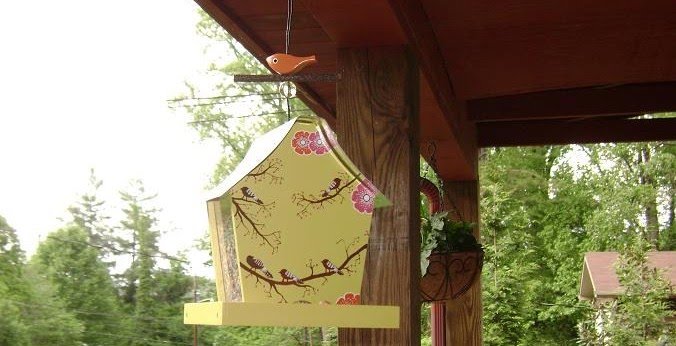
It's not a surprise that Ira Glass' story about Heidi brought me to tears. To tell the truth, I haven't been listening to Ira in a silent never before mentioned boycott, since he hasn't gotten back to me about the story I proposed in April.
And you thought I was incapable of holding a shallow and petty grudge? Even if it's against a famous person I've never met from an NPR Saturday radio show. It's hard for me to comprehend that Ira has apparently ignored my request to interview the man I found who constructed an entire town of Christmas houses sprawling across the lawn on one side of his house, and his mother who constructed an amazing dinosaur village on the other in an itsy bitsy Tennessee town I pass through on the way to Deerlodge.
However, I've grown entirely bored of the 150 eighties songs in the mp3 player in Buck's Honda, and I'm a such sucker for good story. So, I ended my magnificently successful private boycott by swallowing the lump of my pride in a single gulp and intently listened to This American Life on my drive home this afternoon. In all seriousness, Ira has a way of choosing incredibly meaningful stories that immediately penetrate my sometimes stubborn heart.
Today he began with a the story of the mid twentieth century scientist who worked to contradict existing research proving that love was not an essential for babies. In fact, in the days before the 50's, scientists, psychologists, and physicians taught parents that love was actually harmful to infants- more than one kiss a year was to the detriment of a child.
The scientist in Ira's story studied Reece's monkey babies by putting them with two dummy mommies. Wire Mommy, equipped with eyes, nose, mouth, and a bottle of formula protruding from her middle sat beside Soft Mommy made of cloth featured cuddling arms. The test baby monkeys spent 23 hours a day snuggling with Soft Mommy and less than one hour a day getting milk from Wire Mommy. If that wasn't enough to prove his theory, the scientist fitted Soft Mommy with a mechanism to trigger dull barbs to jab the baby intermittently, shake the baby till it's teeth rattled, and toss the baby across the room. Still the test monkeys went back again and again to Soft Mommy's lap to try to gain her love after abuse while Wire Mommy sat still and unattended. I probably need to look up this scientist's name and thank him when we meet at Parousia. Interesting.
Act II of This American Life featured an adoption story of an incredibly strong woman named Heidi, someone I'd like to shake hands with one day. She's a special ed teacher who fell in love with an orphaned Romanian child's picture, so she and her husband adopted him at eight years old from an orphanage. He'd spent the previous seven and a half years before without leaving a crib he shared with another boy.
From what I know about many Romanian adoptions in particular and studies on issues facing children never given opportunity to bond, I predicted "attachment disorder" from the start, and I couldn't have been more on target.
Heidi recalled the horror of anger and violence which overcame her new son as he settled into his first chance at family. The boy wondered why these two awful people he lived with would abandon him for all of his years to a 3 foot cage in Romania. Once he was able comprehend he'd been born to other people who had cast him off, his rage grew unmanageable. He tore over a thousand holes his the walls of his room, and eventually his mother hired a bodyguard to protect herself.
Heidi pursued every therapy to address her son's attachement issues. I'd read a powerful book titled Children Who Are Not Yet Peaceful, and I felt an inkling of hope for this boy consumed with pain. While the book was unrelated to the story, I knew the "cure" to attachment disorder lay in something larger and absolutely more relationally basedl than behavioral reward/punishment therapy. Again, I was right on.
Heidi found an intense treatment which lasted eight weeks. Heidi began the "3 foot therapy". She stopped working her job for those weeks and focused totally on her son. You may not believe this, but her son was within three foot of her at all times! They'd wait outside the bathroom for one another all those weeks. The point was for the two to bond and have him become utterly dependent on her for all his needs just like an infant, so he wasn't allowed to ask for anything. He had to wait and trust her to provide. When he resisted, he got "time ins" in which she'd fold him into her arms and hold eye contact. Eye contact was an essential to the whole program. By the end of the third week, her son decided he didn't hate her anymore. He mentioned he used to go to another room to hate her, but with the therapy he didn't have the chance and decided she was good afterall.
When the eight weeks was up, he was a changed boy. He wasn't violent anymore.
But a bump in the road rose some time later at around age thirteen when he began to steal and enter the juvenille justice arena. Heidi and her husband began another therapy with him in which each night for twenty minutes, his long body would cover over their laps as they embraced him in their arms, fed him icecream with a spoon, and chatted. Love won him over again.
He's since won an award at his synagouge in which he quite obviously choked up during his acceptance speech over deep love for his parents.
Heidi spoke something like this, "You can't teach love. I was only aiming for a little attachment. And now my son does not want to hurt me, and that is love."
Talk about transformation.
My son wrote in his journal a few weeks ago, "Everyone wants to feel different." I interpret "different" as unique or special. Heidi's stubborn and pragmatic approach to love pierces me. She successfully helped her boy become special- see himself as worthy to be loved.
Sincere thanks to Ira for presenting Heidi's story. It's the kind which spurs me away from thinking like a cold dictator orchestrating my mundane life toward the higher ground of my work in the incredible beauty of humankind and unsinkable love.









2 comments:
Wonderful post.
Thank you for writing about this NPR story. I'm trying to find a link to the transcript or to a podcast of this episode. Do you think you could post a link?
thank you,
Post a Comment